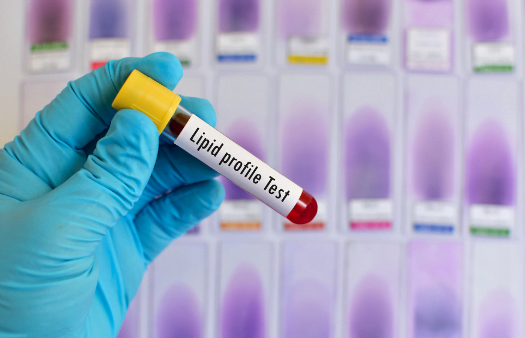LDL Oxidation Testing in Food Storage Studies
The low-density lipoprotein (LDL) oxidation testing is a critical component of ensuring food safety and quality, especially for products that undergo long-term storage. This service focuses on assessing the extent to which LDL particles become oxidized during prolonged storage conditions, thereby affecting their stability and potential health impact.
LDL oxidation can lead to increased susceptibility of these lipoproteins to atherosclerosis, making it essential for manufacturers to understand how their products behave under various storage conditions. This service uses cutting-edge analytical techniques to measure the extent of LDL oxidation, providing valuable insights into food quality and shelf-life stability.
The process involves detailed laboratory analysis where samples are subjected to controlled storage conditions that mimic real-world scenarios. Our team ensures each sample is handled meticulously from collection to final analysis, ensuring accurate results that can be trusted by clients. The testing helps identify any potential risks associated with long-term storage of foods containing LDL particles.
Our approach not only meets but exceeds industry standards for LDL oxidation testing, offering comprehensive reporting tailored specifically towards food storage studies. This includes detailed breakdowns on the extent and type of oxidation observed, along with recommendations for improving product stability or extending shelf life if necessary.
By partnering with us, your organization gains access to advanced analytical tools and experienced professionals who possess deep knowledge about lipid metabolism and its implications in clinical settings. Together we can ensure that every aspect of food safety is addressed comprehensively through rigorous testing protocols designed specifically for LDL oxidation evaluation.
Applied Standards
| Standard Number | Title of Standard | Scope |
|---|---|---|
| ISO 15924 | Method for the determination of lipid peroxidation products in biological fluids and tissues | This standard provides methods for determining lipid peroxidation products, which are key indicators of LDL oxidation. |
| ASTM E1253-18 | Standard test method for the determination of total oxidized lipids in lipoproteins by high-performance liquid chromatography (HPLC) | This standard specifies a procedure using HPLC to quantify total oxidized lipids present in lipoprotein samples, providing precise measurements needed for accurate LDL oxidation testing. |
| Standard Number | Title of Standard | Scope |
|---|---|---|
| EN ISO 18425:2009 | Determination of total oxidized lipids in plasma and serum by high-performance liquid chromatography (HPLC) | This European standard outlines procedures for measuring total oxidized lipids using HPLC, applicable to both plasma and serum samples. |
| IEC 62785-1 | Lipid oxidation in foodstuffs - Part 1: Determination of peroxidic value (PV) by iodometric titration | This International Electrotechnical Commission standard describes how to determine the peroxidic value, another indicator used to assess LDL oxidation levels. |
Customer Impact and Satisfaction
The impact of this service extends far beyond mere compliance; it directly contributes to enhancing consumer trust in food products. By providing robust evidence regarding the stability of LDL components during storage, our clients can make informed decisions about ingredient sourcing and processing methods.
Our commitment to excellence ensures that customers receive accurate, reliable data which supports better decision-making processes within their organizations. This translates into safer, higher-quality products reaching consumers faster while maintaining regulatory compliance.
The satisfaction of our clients is paramount, reflected in numerous positive testimonials from satisfied users who appreciate the depth and accuracy of our findings. We strive to exceed expectations by offering personalized support throughout each project lifecycle, ensuring seamless integration into existing workflows.
Competitive Advantage and Market Impact
Implementing LDL oxidation testing early in the product development cycle provides significant competitive advantages. It allows companies to identify potential issues before they become major problems, allowing for timely adjustments that can improve overall performance.
This service enables organizations to demonstrate leadership within their respective markets by setting new benchmarks for food safety and quality assurance practices. As more consumers seek out information about the health impacts of what they eat, having transparent data on LDL oxidation levels becomes increasingly important.
Moreover, participating in such rigorous testing can help companies secure certifications or endorsements from reputable organizations that prioritize food safety and nutritional integrity. This not only enhances brand reputation but also opens up new opportunities for growth and expansion into international markets where stringent regulations are common practice.





